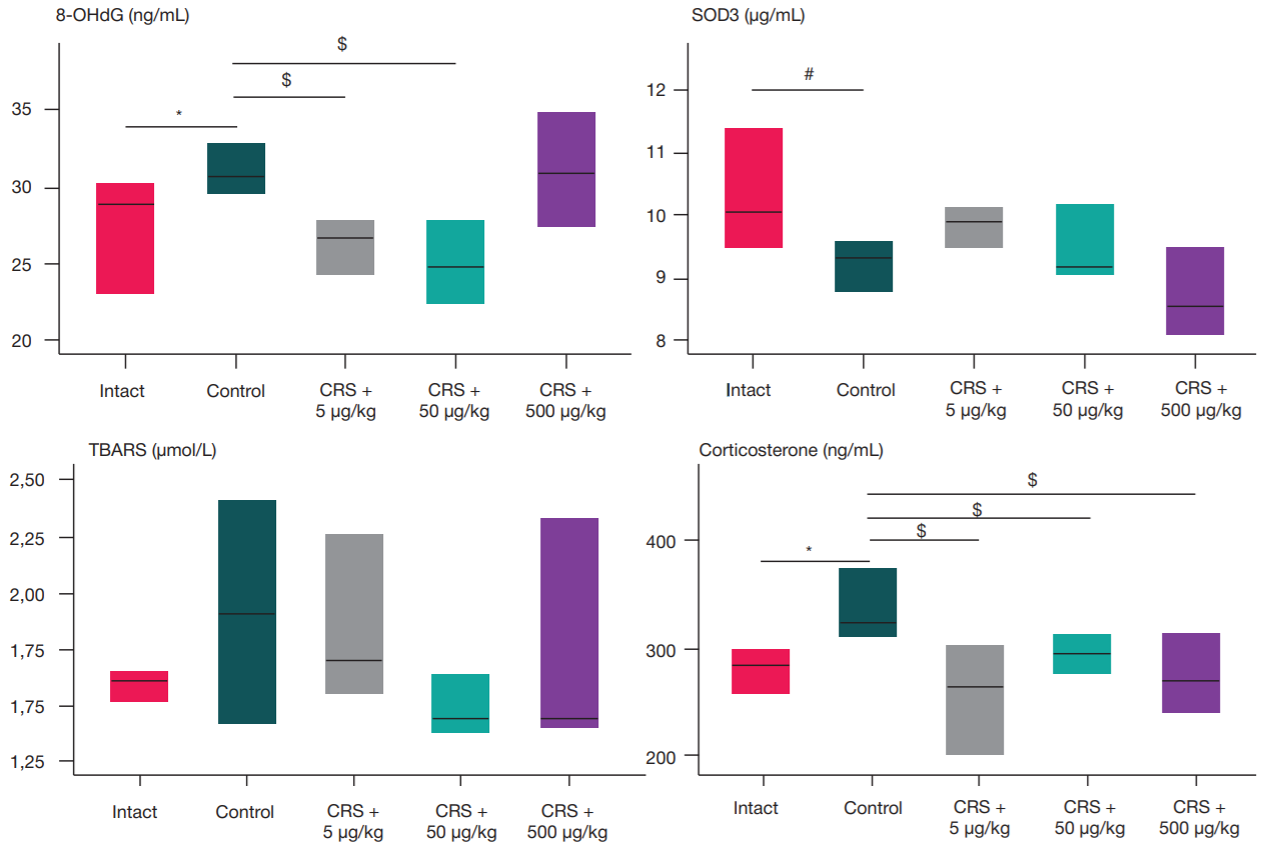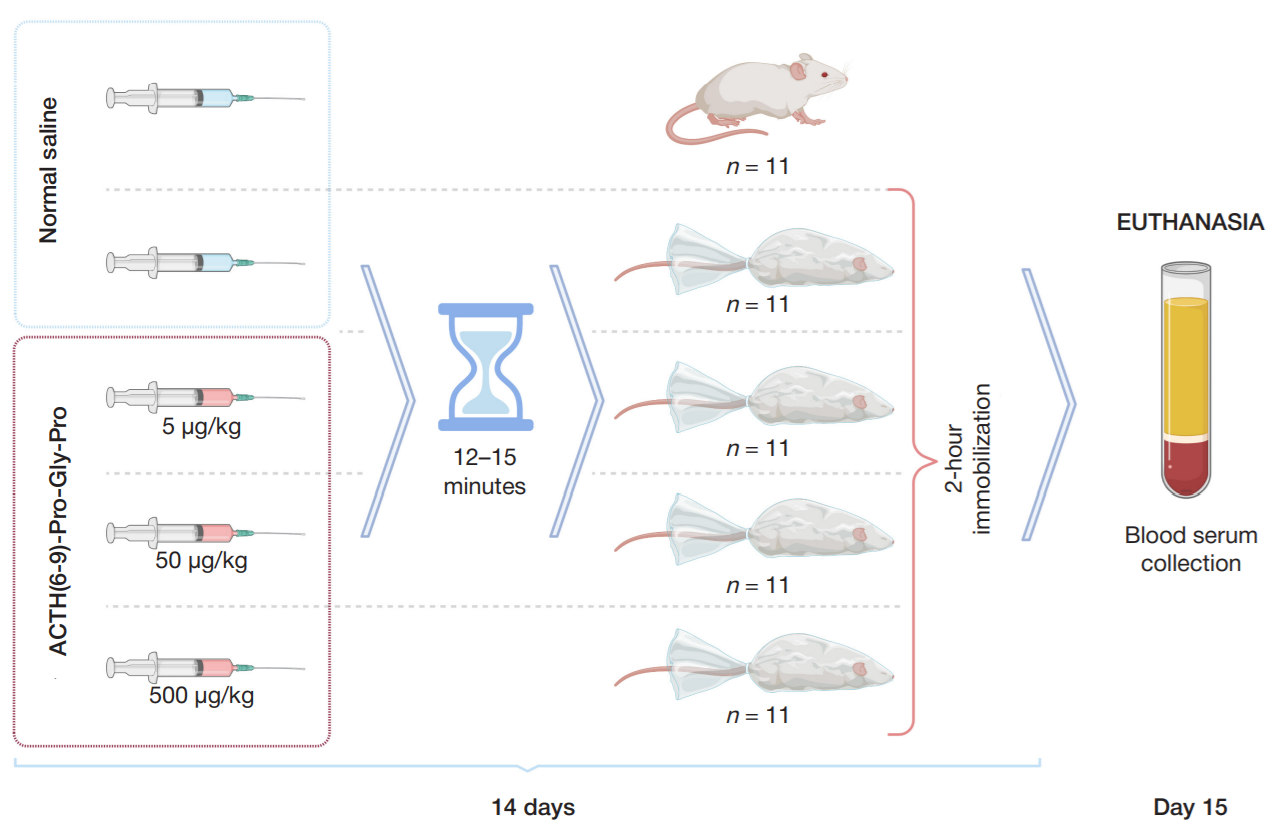
This article is an open access article distributed under the terms and conditions of the Creative Commons Attribution license (CC BY).
ORIGINAL RESEARCH
Effects of His-Phe-Arg-Trp-Pro-Gly-Pro peptide on free-radical oxidation processes in conditions of chronic restraint stress
1 Kursk State Medical University, Kursk, Russia
2 Institute of Molecular Genetics, RAS, Moscow, Russia
Correspondence should be addressed: Anton O. Vorvul
Karl Marx str. 3, Kursk, 305041, Russia; ur.liam@6991luvrov
Author contribution: Vorvul AO — performing experiments, quantification of oxidative stress markers, data acquisition and statistical processing, manuscript writing; Bobyntsev II — study concept and design, manuscript writing; Medvedeva OA — study concept and design; Azarova YuE — quantification of oxidative stress markers; Belykh AE — manuscript writing; Andreeva LA — study concept and design, peptide synthesis.
Compliance with ethical standards: the study was approved by the Ethics Committee of the Kursk State Medical University (protocol № 3 dated November 16, 2020). All the experiments were in line with the ARRIVE guidelines and were performed in accordance with the Directive 2010/63/EU of the European Parliament and of the Council on the protection of animals used for scientific purposes.


